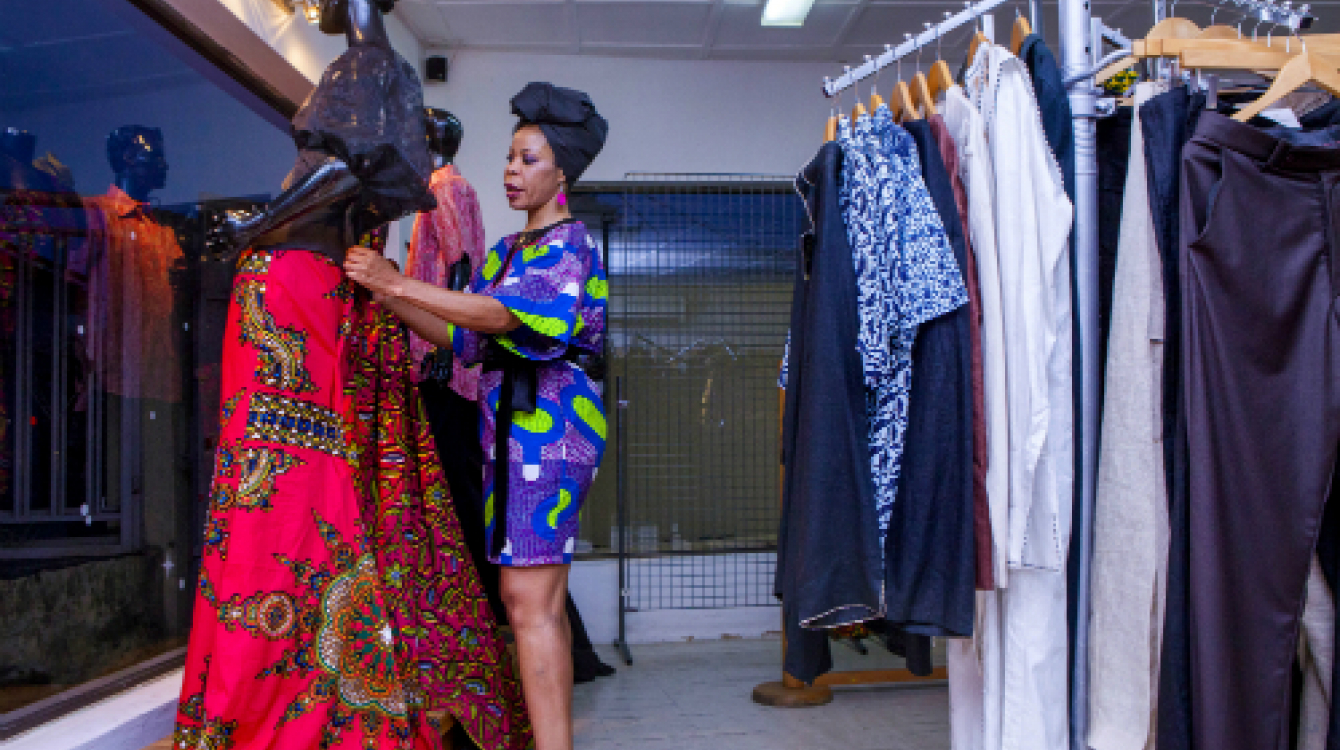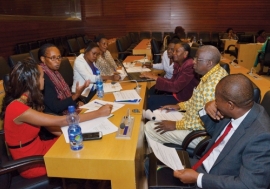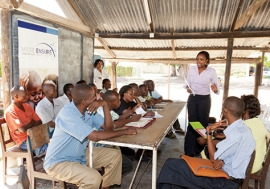Think beyond microfinance when talking about businesswomen
Think beyond microfinance when talking about businesswomen
As the Third International Financing for Development conference kicks off in Addis Ababa, Ethiopia, Africa is set to begin implementing its ambitious 50-year development blueprint, Agenda 2063, bringing into focus the issue of how to finance development plans.
Agenda 2063 will require significant financing from a wide range of sources to fund infrastructure development, industrialization, private sector growth, technology and human capital development if the continent is to achieve the socioeconomic transformation that it is envisioning. True, financing in general is a challenge for Africa, but no group faces more barriers to accessing finance than the women of Africa.
Africa’s economic growth over the past decade has been positive, but the impressive numbers do not tell the whole story. While women own about 48% of all enterprises in Africa, the African Development Bank estimates that they account for only 20% of the continent’s banked population. Roughly four in every five women on the continent lack access to a bank account at a formal financial institution, compared to about one in every four men. The disparity is particularly glaring in agriculture. Although more than 70% of farmers in Africa are women, they benefit from only one-tenth of the credit given to small-scale farmers and less than 1% of total credit to agriculture.
The challenges African women face in accessing finance include women’s lack of collateral, legal and cultural barriers to land and property ownership, discriminatory regulations, limited employment in the formal sector, lack of availability of financial products targeted to their needs and the fact that banks do not fully understand female-run businesses or the market niches they occupy. These barriers have hindered the capacity of women to grow and develop businesses, which as a result, has held back economic growth on the continent.
The widening disparity in access to finance has led to the rising popularity of microfinance for women. In the past decade, microfinance institutions, which include non-profit groups, savings and credit cooperatives, regulated specialized providers and others, have reached many women who were previously excluded from formal financing, through small-scale loans and credit to small enterprises and poor households.
Yet while the discussion about financing for development has widened in scope, the discussion about financing for women has remained stubbornly locked on one scale—micro. Speaking early this year in Addis Ababa at a conference of African finance ministers, Nkosazana Dlamini-Zuma, the chairperson of the African Union Commission, implored participants to think beyond “micro” when discussing finance for projects run by women in Africa.
“We hear micro this, micro that…there is nothing micro about women!” Ms. Dlamini-Zuma told participants.
Similarly, Elizabeth Rasekoala, the co-founder of SET4Women, the Southern African Reference Group on Gender, Science and Technology, urged participants at a conference on the role of women in implementing Agenda 2063 to “start thinking big and stop prefacing everything to do with women with ‘small’ or ‘micro’ but to engage them as entrepreneurs.”
Gender advocates say that as key drivers in implementing Africa’s post-2015 development agenda and Agenda 2063, female business owners must be empowered to go beyond small- and micro-enterprises and get access to the finance needed to create medium- and large-scale businesses. Access to finance on such a scale would be transformative, and empower women to enter productive value chains, expand hiring and employment opportunities, utilize efficient technologies and expand the reach of their businesses beyond their borders.
Analysts agree that for this goal to be reached, banks have to open their doors and ensure financial inclusion and increased access for women. This would require formal financial institutions to consider new and innovative approaches to conducting business in order to meet women’s needs. A small but growing number of African banks have developed products that target women, and others have adopted women-friendly banking procedures, including eliminating minimum balances, widening the scope of elements considered in credit evaluations, reducing collateral requirements and allowing alternate forms of collateral. Such practices, which have shown positive results and contributed towards reducing gender-based barriers, should be implemented and expanded by more banks on the continent.
According to gender advocates, empowering African businesswomen is critical; it demystifies credit application processes, addresses risk aversion and ultimately strengthens women’s access to financing. Other areas that might need to be strengthened include education and capacity building in financial literacy and business skills.
What can be done
In order to create an enabling environment, governments will need to modify and adjust their legal, regulatory and supervisory frameworks to remove barriers to finance for women, such as discriminatory legal provisions that confine women to the legal status of minors and laws that prohibit women from owning property. After such laws and policies are changed, women and decision makers should be informed of these changes.
Governments and development organizations, especially international financial institutions, also have important roles to play in promoting equal opportunities for women and men. They should encourage banks and other formal institutions to increase credit access for African women, and provide technical assistance and training to institutions that are unfamiliar with lending to women. They should also provide guarantees to raise the confidence of lending institutions so that they invest greater capital in women-owned businesses.
Finally, governments will need to bridge the gap between the formal and informal sectors by simplifying business registration procedures and encouraging women-owned businesses in the informal sector to register with governments and tax authorities, as this will also facilitate their access to financial markets.
Ndidi Anyaegbunam and Ecoma Alaga are programme officers in the UN Office of the Special Adviser on Africa.























